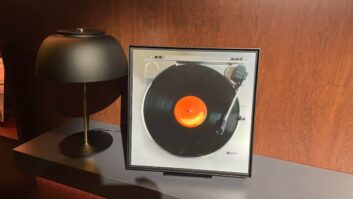New York – A start-up company believes it can broaden the customer base for authorized music downloading if it eliminates PCs from the process.
The venture-capital-funded company, New York-based Music Gremlin, has developed a reference platform that lets consumers download music directly to handheld music portables via home or office Wi-Fi network or via public Wi-Fi hot spots. The music would be downloaded from a Gremlin-operated site.
Eventually, music portables could be equipped with third-generation (3G) cellular technology or with IEEE 802.20 wireless technology, which is under development to deliver wide-area high-speed data to portable and hand-held devices.
Music Gremlin is testing its product design and download service with consumer electronics companies and believes the first product could be available in the fourth quarter, said Robert Khedouri, one of the company’s principals.
“Cellular carriers are interested in this type of service in the ’05 timeline,” Khedouri added. “We’ve been approached by music stores” that would offer in-store download services, he added. Retailers are interested in private-labeling the portables and the service, he noted.
The platform accommodates either flash memory or hard disk drives as the storage medium in music portables, and it can be incorporated in PDAs based on Microsoft and Linux operating systems. It also accommodates a variety of codecs and digital rights management (DRM) technologies. The first devices, however, will use the Windows Media Audio (WMA) codec and DRM, the company said.
In an unusual twist, a database of about 500,000 song titles would reside on the portable device itself, enabling consumers to choose songs for downloading before making a wireless connection. The database would be updated automatically either when the device is connected to a Wi-Fi network or when it’s docked in its charging cradle, which could connect directly to a broadband modem via an Ethernet connection.
Adding Wi-Fi to a portable music player will not compromise size or battery life, Khedouri said. Wi-Fi’s power demands won’t “significantly shorten” battery life because Wi-Fi would be used only during download periods, he said. Battery life would be competitive with Apple’s iPods. Wi-Fi chipsets don’t take up much room, he added, and a Wi-Fi antenna can be built into the device’s case.
If granted approval from music labels, Music Gremlin’s download service would offer two options: a flat-fee monthly subscription service and an a la carte service. The a la carte option lets consumers permanently own downloaded songs, which could be transferred to a limited number of PCs. Under the subscription model, subscribers could download all the songs they want and listen to them as long as a subscription is paid up.
With a subscription, users could not transfer songs from their portable to a PC or to non-Gremlin portables, but during the subscription period, DRM-protected songs could be shared with other Gremlin subscribers in one of two ways: a peer-to-peer Wi-Fi connection or over a broadband network. Subscribers could, for example, click on a name on a buddy list to view and download songs recently downloaded by a buddy.
When a subscription lapses, consumers would be able to buy their downloaded songs. Subscribers could also customize the service, directing the service to push a certain number of songs of a particular genre, for example, to the device at different times of the day.
A hybrid streaming-radio and download service would become feasible with 3G cellular versions of the device. The company demonstrated its service over Flarion’s high-speed wide area wireless network during the Cellular Telecommunications and Internet Association (CTIA) show earlier this year.
Khedouri is an attorney who was a McKinsey consultant to the music industry on other strategic issues. Principal Jonathan Axelrod was a McKinsey consultant on e-commerce and a founder of the Music123 site, which sells musical instruments on a wholesale and retail basis.
Investors include MPH Enterprises and a former Proxim CEO, they said.













